|
In celebration of the Fourth General Congress of the Union of the Catholic Apostolate, the Catholic Apostolate Center will share weekly homilies from the Congress. Homily for July 10, 2024 “Grant us to be instruments of peace and love, reflecting the love of Christ in every situation” The theme for our reflection and prayer today is, once again, taken from the Prayer in Preparation for the UAC General Congress. It is a very sincere prayer from our hearts: “Grant us to be instruments of peace and love, reflecting the love of Christ in every situation.” Every Pallottine is called to be an instrument of peace and love, by reflecting the love of Christ in every possible situation.
This prayer reminds of the famous prayer of the great Saint Francis of Assisi: “Lord, make me an instrument of your peace.” It is a timeless expression of humility, love, and service to others. The prayer captures St. Francis’s commitment to peace, love and compassion, emphasizing virtues like forgiveness, understanding, and selflessness. It is also a reminder for all the members of the Union that they have to be genuinely involved in the affairs of the world. They have to be instruments of peace and love, fraternal communion and solidarity, through the exercise of forgiveness and compassion. They have to be healers and protectors of the widows and orphans. But all these things are to be done not on their own merit; they have to only reflect the love of Christ in every situation. The first reading from the book of Hosea reminds us that we can cease to be instruments of peace and love. Israel became like a luxuriant vine producing a lot of fruit. “The more his fruit increased, the more altars he built; the richer his land became, the richer he made the sacred pillars. Theirs is a divided heart; now they will have to pay for it. He himself will hack down their altars and wreck their sacred pillars.” (Hosea 10:1-2) God destroyed the arrogance and the symbols of immortality. “Sow saving justice for yourselves, reap a harvest of faithful love; break up your fallow ground: it is time to seek out Yahweh until he comes to rain saving justice down on you.” (Hosea 10:12) Hence the invitation is to reap a harvest of love. In the Gospel passage of today, we see Jesus empowering the twelve disciples to reap the harvest of love, and proclaim the Kingdom of justice and love. “He summoned his twelve disciples and gave them authority over unclean spirits with power to drive them out and to cure all kinds of disease and all kinds of illness.” (Matthew 10: 1-7) Jesus gave them authority over unclean spirits, the source of division and conflicts. The Kingdom of God will be marked by the values of communion, justice and peace. In this context the words of Saint Pope VI in Populorum Progressio (n.76) are very appropriate: “When we fight poverty and oppose the unfair conditions of the present, we are not just promoting human well-being; we are also furthering man's spiritual and moral development, and hence we are benefiting the whole human race. For peace is not simply the absence of warfare, based on a precarious balance of power; it is fashioned by efforts directed day after day toward the establishment of the ordered universe willed by God, with a more perfect form of justice among men.” Speaking of the mission of the Union of Catholic Apostolate in cooperation with all people of good will, living images of charity itself, n.16 of the General Statute identifies a number of areas for our engagement with the world, such as: protecting the values of human life and the family, working for the promotion of justice, solidarity, peace and protection of creation, encouraging inter-religious dialogue, and caring for the poor and needy. We have innumerable examples of our commitment to the needs of the people of God in our Pallottine Family. What we do for the poor and needy will be most meritorious before God. Without genuine commitment to acts of fraternal charity, the Union will always remain just a concept without flesh and blood. I conclude with these words of hope expressed by Pope Francis in his Encyclical Letter Fratelli Tutti: “I invite everyone to renewed hope, for hope 'speaks to us of something deeply rooted in every human heart, independently of our circumstances and historical conditioning. Hope speaks to us of a thirst, an aspiration, a longing for a life of fulfillment, a desire to achieve great things, things that fill our heart and lift our spirit to lofty realities like truth, goodness and beauty, justice and love… Hope is bold; it can look beyond personal convenience, the petty securities and compensations which limit our horizon, and it can open us up to grand ideals that make life more beautiful and worthwhile.' Let us continue, then, to advance along the paths of hope.” (n.55) Amen. Fr. Jacob Nampudakam, S.A.C. UAC President
0 Comments
During my fifth year with D.C. United, the team brought in a nutrition specialist. The specialist gave his presentation and then looked toward a table in the middle of the locker room that held about 40 pill bottles of vitamins, supplements, mild pain relievers, gels, powders, and who knows what else. The nutritionist then walked over to the table, looked back to us, and said, “you know, if you just eat well you can throw all of these out. In fact, you’d be better off doing that.” He left the locker room five minutes later and never came back. For my first five years at DCU, I had been taking those vitamins and supplements at the recommendation of our strength and conditioning coaches and athletic trainers. Now a certified nutritionist deemed the whole thing a waste of time and had even said they could hinder our performance—I wondered what exactly to do. Who should I listen to? This memory has stayed with me because it matters a lot for an athlete what you do with your body. It matters how you train, eat, sleep, relax, and recover. You need to know what is helpful for your athletic development and what is unhelpful. I wanted to know if the pills and supplements helped me or hindered me. This all applies to athletic prudence in the natural realm. Prudence is the ability to judge rightly and act according to that knowledge. It is being able to think through things correctly and then make the right choice. Thus, athletic prudence is the ability to choose and act rightly in the realm of an athletic pursuit. We make decisions and then act based upon what we have concluded is actually helpful or unhelpful in relation to our goal. I would like to apply this same line of thinking to the virtue of prudence in the supernatural realm. We should be asking what is helpful or unhelpful in terms of our spiritual lives. Just like the nutritionist condemning our pill vault and making me wonder what was actually helpful for my soccer career, we should ask what in our lives helps or hinders us from going to God. In order for us to do this, of course, we must acknowledge that God is both our goal and a worthy (the most worthy!) goal at that. When I got to the height of my playing career I was devastatingly depressed for a very concentrated span of time (only several days). For months I pondered why I hit such a low point amidst more success than I had ever expected. Eventually, through the help of the Holy Spirit, I realized that God allowed me to feel the weight of my success without Him. It was an incredible grace—but also one that was difficult to really learn. Over time the truth that my soul was more important than my sport sunk in. I realized that much of what I had made my life about was, in the end, unhelpful for reaching the ultimate Goal who is God. I started applying my athletic thinking to my spiritual life. I started asking the right questions—is this helpful or unhelpful for my spiritual life? Should I be hanging out with this group of friends so much? Are my weekend habits really bringing joy to my life? Am I living as the person I want to be? Do I know who I want to be? These questions led—and continue to lead—me to Jesus, and I find myself needing to ask them again and again. Do the decisions I make help me become who I want to be? Or are my decisions hindering me from being that person? Athletic prudence helps athletes maximize their potential and use their God-given gifts to the best of their ability. This same principle can—and should—be applied to our spiritual lives. Are the decisions, actions, and principles that guide my life helpful? Are they leading me in a good direction? Prudence, says St. Thomas Aquinas, is the mother of the virtues. You cannot possess any virtue without the virtue of prudence because prudence is what enables us to recognize what is truly good (helpful) and then act according to that good. No athlete can become great apart from athletic prudence because athletic prudence enables the athlete to recognize and act upon what helps him or her become a good athlete. Far more important, however, is the realization that no person can become who they were created to be apart from supernatural prudence. It is not possible to follow Christ without first asking yourself what exactly it is you’re already following—what is it that shapes your decisions? It may be a desire for comfort, power, status, honor, wealth, success, popularity, or any number of things. But they all fall short. To be prudent you must know the end goal. You cannot attain the virtue of prudence in the whole of life without knowing that “it is Jesus in fact that you seek when you dream of happiness.”  Taylor Kemp is an instructor for the Denver Catholic Biblical School as part of the St. John Vianney Seminary Lay Division in the Archdiocese of Denver. He is a former professional soccer player, amassing over 100 appearances over six-years in Major League Soccer (MLS) for D.C. United, and playing for both the youth and full United States Men’s National Team. Taylor holds an MA in Theology from the Augustine Institute and BS in Business Management from the University of Maryland, College Park. What image comes to mind when you hear the word conversion? To many, the words of those who encountered Jesus in his earthly ministry may come to mind. Conversion may sound like the cry of the Samaritan woman in John’s Gospel: “Come and see a man who told me everything I have done. Could he possibly be the Messiah?” (John 4:29). Perhaps Caravaggio’s The Conversion on the Way to Damascus rises to the surface, an expression of a dramatic scene illustrated with a few artistic liberties. Still, we may associate conversion with a story like St. Augustine: a turning from a former life of debauchery or sin to a life lived in pursuit of God. Because of the art that is important to our faith, cultures, and families, we may assume conversion to be a dramatic, “lightning-bolt” moment: brief, intense, supernatural, and immediately transformative. While our tradition does speak of the reality of dramatic conversions, conversion itself is often more gradual and organic. For those of us whose lives have not yet become hagiography, what does conversion look like? More particularly, what does conversion look like for us in this particular moment, in our current context of history and life? First of all, what is conversion? Conversion, according to the Catechism of the Catholic Church, is “a radical reorientation of our whole life, a return, a conversion to God with all our heart, an end of sin, a turning away from evil, with repugnance toward the evil actions we have committed. At the same time it entails the desire and resolution to change one's life, with hope in God's mercy and trust in the help of his grace” (CCC, #1431). It is “first of all a work of the grace of God who makes our hearts return to him,” and is not “aim[ed] first at outward works, ‘sackcloth and ashes,’ fasting and mortification, but at the conversion of the heart, interior conversion” (CCC #1432 and #1430). In other words, conversion is a movement away from sin, a re-ordering of priorities with Christ re-categorized as the center of our lives. It is something that occurs through supernatural grace and the initiative of the Holy Spirit, first changing our hearts and minds, but through our cooperation, manifests itself in everyday actions or “visible signs” (CCC #1430). The process of conversion, for most of us, is not instantaneous; rather, it usually a slow, gradual process that involves daily recommitment and practice. In a 2017 audience, Pope Francis reflected on the gradualness of conversion this way: “Avoiding evil and learning to do good: this is the rule of conversion. Because being converted doesn’t come from a fairy who converts us with a magic wand: No! It’s a journey. It’s a journey of avoiding and of learning.” As Pope Francis highlights, conversion can be as simple as learning something new. It involves openness to re-orienting our priorities, changing our opinions, reconsidering our worldview, and engaging with the truth. However, the gradual process of conversion doesn’t start and end with us; it is always oriented towards the building up of humanity and being brought more deeply into right relationship with God and one another. Conversion always has a social and relational impact. As the Catechism of the Catholic Church notes, “Conversion is accomplished in daily life by gestures of reconciliation, concern for the poor, the exercise and defense of justice and right, by the admission of faults to one's brethren, fraternal correction, revision of life, examination of conscience, spiritual direction, acceptance of suffering, endurance of persecution for the sake of righteousness” (#1435). Our actions towards our neighbors, God, and the world around us is where our conversion is realized and bears “fruit that will last” (John 15:16). Conversion has both vertical and horizontal dimensions to it; it calls us to recognize ourselves as Beloved children of God, and, at the same time, recognize this Belovedness in our neighbors more clearly as a result of the transforming love of God. We are called to learn more, think more deeply, and consider more thoroughly, especially when the common good of our neighbor is at stake: “It follows that Christian conversion demands reviewing especially those areas and aspects of life ‘related to the social order and the pursuit of the common good.’” (Evangelii Gaudium, 182). When we say that the Christian life is one of on-going conversion, we simply mean this: we are called to learn of our and our neighbors’ Belovedness over and over again and re-commit to it each day. This learning is not merely intellectual, but is also a deep education and formation of the heart and soul that spills over into our concrete lives. In our period of history and social context, conversion may be less dramatic and more gradual for most of us than some of the saints and figures of our faith. However, that does not mean that it is any less exciting! Our personal process of conversion can start as the size of a mustard seed, and grow into a deeply authentic faith that changes the world: “An authentic faith – which is never comfortable or completely personal – always involves a deep desire to change the world, to transmit values, to leave this earth somehow better that we found it” (Evangelii Gaudium, 183). What is going on in our world and in the lives of our neighbors that is calling us to conversion? What new things or viewpoints are we being called to learn or unlearn to realize our Belovedness and the Belovedness of our neighbor? How can we be more open to living a life of ongoing conversion?
The Easter season assaults the physical and spiritual senses, calling the body and soul to unite as we share in a mere glimpse of the eternal life that was offered to us when the gates of paradise were opened on that beautiful Easter morning. Typically around this time, the smell of the Easter flowers adorning the sanctuary remind us of new life. The scent and sight of the burning incense and candles rising to heaven with our humble cries of “Sanctus, Sanctus, Sanctus” remind us of our prayers going up to the altar of God. We reach our fingertips out to touch the droplets of water washing over us and are reminded of our baptismal promises. The reception of the Eucharist leaps past our lips and dances on our tongue as we are engulfed, body and soul, by the true presence of our risen Lord. “Alleluia!! He is RISEN!! Where, oh death, is your sting?!” The words resound from the core of our being and echo through our hearts, escaping our lips in cries of exaltation. A few short weeks ago, these words were uttered from the speakers of televisions, laptops, and phones as we ushered in the Easter season as a Catholic family and community during the coronavirus pandemic. The tangible nature of the Catholic faith and the deep-rooted sense of community that the Easter season brings made this a difficult celebration for many of us. This rich season is a beautiful fifty-day celebration spanning from Easter Sunday to Pentecost. What a challenge it is, though, to maintain our joy when our hearts feel heavy and our senses yearn to be submerged in the deep traditions and rituals of our faith. “I am a practicing Catholic”. We may have uttered these words at various stages throughout our life for various reasons. Perhaps this simple phrase is the key we inherently possess to bridge the gap we may be feeling and provide much needed balm to our weary spirits and aching senses. As many of the doors of our church buildings closed for the safety, protection, and health of our communities, the foundations of the domestic church have begun to shine forth. For many, our homes have become the sole place for worship, praise, and spiritual communion, and we find ourselves face to face with the deep reality of Saint Paul’s words in his letter to the Corinthians. “For we know that if our earthly dwelling,* a tent, should be destroyed, we have a building from God, a dwelling not made with hands, eternal in heaven…For in this tent we groan, longing to be further clothed with our heavenly habitation…So we are always courageous, although we know that while we are at home in the body we are away from the Lord, for we walk by faith, not by sight” (2 Cor. 5:1-8). And so the words, “I am a practicing Catholic” tumble around deep in our beings as we seek to uncover the answers that the groaning spirit within us already understands. We can “practice” our Catholicism in a new, perhaps, different way during this time. Do we know the power of our habits? Our habits form and inform both the nature of how we approach our days, as well as the manner in which we respond to catalysts in our daily life. What do you automatically do when you wake up in the morning? The action steps that you take both consciously and subconsciously are habits and routines that you have formed over time to serve you in preparing to approach the day that lies ahead. There are two main instigators that cause us to revise and/or disrupt our habits: the desire for change or a need to adapt due to changing circumstances around us. Perhaps at this time both of these instigators are merging to grant us with a divine opportunity to draw ourselves closer to God. Within the very practice of our Catholic faith lie “habits” called virtues that can be practiced, developed, and deepened to help us grow closer to God and to fortify our relationship with Jesus Christ through the divine assistance of the Holy Spirit. The Catholic virtues are a beautiful way to continue to explore, celebrate, and proclaim the spiritually tangible aspects of our faith. By embracing these changing circumstances around us through a contrite desire to grow in virtue, concrete decisions and actions can be taken to deepen our virtuous life. In doing so, we strive to unite our physical actions and spiritual practices to grow in virtue while cultivating our domestic churches. If, therefore, we can embrace this time in our history to strengthen our virtuous resolve to truly anoint our lives and those around us with a real presence of the Living God, perhaps we may find that, although the doors of our earthly buildings have been temporarily closed, we can embrace the opportunity to unite our voices with the cries of the saints of heaven: “Alleluia! He is Risen!” “Our hearts are burning within us!” “My Lord and My God!” I’m blessed to be a part of a family which includes three different vocations: marriage, religious life, and the discernment of the priesthood. The annual March for Life, which occurred this year on January 24th, provided my wife and me an opportunity to host not only her sister who joined a religious order, but also several members of the religious community. As they are part of a semi-contemplative order, the sisters made the most of their time in DC touring the city, visiting historic and spiritual sites, and learning in museums—all while sharing a public witness to their vocation. As their hosts, my wife and I had a unique vantage point which allowed us to see the reactions of passersby, both the bewildered and the curious, who are not accustomed to seeing women religious in public. The sisters are used to it, and more importantly, realize they have an opportunity to evangelize and share with others who they are and what their vocation is. Often a chat or introductions will be made, prayer cards will be given, and some pictures are taken (whether stealthily or outright). I noticed the sisters made the most of these moments, probably because they realize they can bring anyone they meet into an encounter with the Lord. The sisters and their joy witness to God’s fidelity in ways often unknown. At the Vigil Mass for Life at the Basilica of the National Shrine of the Immaculate Conception, the sisters were just a few of the many women religious present. Though each order’s habits are different, I noticed many pilgrims came up to the sisters after the Mass to inquire about their order and their distinct purple habits. The same happened at the March for Life the next day: many people simply took photos of or with the sisters, others exchanged pleasantries, memories, and prayer cards, and others ran up to the sisters and thanked them for their vocations or wanted to learn more about the order. Returning home with them across town that afternoon, however, we left the massive crowds who shared our values and encountered the daily commuters of DC. I was amused to watch them look up in surprise from their smartphone screens. The sisters would happily engage with their fellow passengers, chat about religious life, and in one case, ask a practicing Hindu about their bindi, or a vermilion mark. Similar scenes occurred over the weekend. but it wasn’t all like a celebrity sighting: on more than one occasion, the sisters would go up to a homeless or mentally-ill person and, after chatting a bit about Jesus and Mary, share a miraculous medal and holy card to remind them about faith and invite them to trust in God. These were people used to being passed by on the sidewalk each day as they begged for food or for someone to listen to and be with them. Imagine the shock they experienced when “strangely dressed” women were suddenly engaging with them and treating them with respect and compassion! There is no way of knowing just how God may have used the sisters as a means of planting the seeds of faith in various encounters. Certainly the unusualness of the situation might shake someone out of their complacency and eventually cause them to recall a positive memory of faith from youth or simply remember consecrated persons live and act in the world as a beautiful witness to… something. That something may lead to a renewed quest for truth or personal peace. In God’s good time, this yearning may be a motivation to reconnect with God and embrace a life of faith and holiness. But all of us, especially laypeople, are similarly called to holiness by virtue of our baptism in Christ Jesus. We need not depend on wearing a religious habit to draw others into an encounter with the Lord, but can invite others in our schools, workplaces, social gatherings, and homes to participate in religious practices such as grace before meals, going on a pilgrimage to a holy site, reading books by the saints, or simply starting a meaningful conversation. The options for spiritual accompaniment are endless. Given time, prayer, and trust in the Lord’s will, each of us can instill the smallest seed of faith which can grow into a towering wonder. For more resources on Vocational Discernment, please click here. To learn more about spiritual accompaniment, please click here. Today is the optional memorial of Sts. Cosmas and Damian, who were twin brothers born in the third century in Arabia. Both Cosmas and Damian became physicians, and in true Christian charity, refused to accept payment from their patients. During the persecutions under Roman Emperor Diocletian, the brothers’ renown in their Christian community made them easy targets. They were imprisoned and tortured by various means in an effort to force them to recant their faith, and after surviving most of these tortures while remaining true to Christ, Cosmas and Damian were finally beheaded.
What draws me to the story of Sts. Cosmas and Damian is not only their adherence to the faith while under excruciating torture, but also their unfailing generosity to those around them. They tended the sick in their community and did so without asking for or taking any monetary compensation. I like to think this was because they were often helping sick people who were also too poor to afford a physician in the first place. Generosity is a virtue that can easily be motivated by pride—we do good things for others, secretly hoping to get accolades or some kind of reward for being so self-giving. But I think generosity is really about giving to others —material, spiritual, or emotional—because you know the other will benefit, even if there is no compensation for you in return, or if (like Cosmas and Damian) you refuse to take any. Generosity is not only exemplified by a wealthy man donating money to charitable causes, nor only by going on mission trips to help those in poverty, nor is it demonstrated by showering poor children with gifts at Christmastide. We can cultivate the virtue of generosity in ourselves much closer to home and on a daily basis—just as St. Cosmas and St. Damian did. Generosity is lived out by a talented musician volunteering at his church to worship God in song, or by a mother who prepares and brings home-cooked meals to other families in her parish who have a new baby or have had a recent surgery. There is also spiritual and emotional generosity: being present and available to our siblings, children, parents, or friends as they struggle with transitions or discernment. When we engage in these acts of generosity, we serve Christ by serving others—even if it is not necessarily a sacrifice for us to do so. (Although I know for myself, the sacrifice that comes with being generous is striving to be selfless in my generosity and not to expect or desire reciprocation.) We are called to use anything that we have been given in order to glorify God. And what about those—presumably poor—people that Sts. Cosmas and Damian healed and treated? Who knows what kinds of generosity they were able to offer to their benefactors as a result of their encounter with the twin saints? Maybe they were generous in their prayer lives and interceded for the physician brothers. Maybe they were inspired by the generosity and faith of the two saints and went on to assist others in their community. Even if we cannot always be materially generous to each other, giving of ourselves in any capacity can cause a ripple effect of generosity throughout our communities. We can also learn to support and foster the generosity of others by thinking about how we respond when we are offered someone’s generosity, whether we asked for it or whether it was volunteered to us. Personally, I am working on asking for help or accepting generosity with humility. I know that I am less likely to help someone if they repeatedly protest my efforts or insist that I am doing too much, and therefore I try not to protest or downplay the good work that someone does for me. I try to remind myself that by serving each other, we are ultimately serving Christ. Questions for Reflection: Have you ever been the recipient of an act of generosity that changed your life? How so? On August 15th, the Solemnity of the Assumption of our Blessed Virgin Mother into heaven, we celebrate Mary’s completion of life on Earth and her existence in eternity with Jesus. We can reflect on her sinless life as she was chosen by God to be the mother of Christ and also on her example of motherhood, grace, and virtue.
On this Marian feast, I feel a special closeness to the Blessed Mother because I recently found out that, I too, am preparing to be a mother. I ask for Mary’s intercession for a healthy pregnancy often and I hope to love more each day like she did. From her moment of saying, “Yes!” to God at a young age, to her worried searching for Jesus in the Temple, and even to her urging of her son at the Wedding at Cana to begin his ministry, Mary is a mother we can relate to. Her faith in God kept her focus on Jesus and his growth, safety, and well-being on Earth in order to ensure that he would fulfill his life’s mission to save us all from sin. Mary is the mother we can all imitate. Mary’s life was probably not an easy one. She faced speculation and ridicule from those in her community when she gave her Fiat and said yes to God’s plan. She lived at a time when a pregnant and unwed woman could be outcast from everyone she knew, but she persisted and trusted. Enduring these hardships could create doubt in someone’s mind and dissuade a person, but Mary stayed true to her grace-filled faith. I like to imagine that her cousin Elizabeth was a kindred spirit for Mary, someone who could support her and was also full of grace and faith. Joseph too, said “Yes!” to God, took Mary as his wife, and raised Jesus with strength and grace. He was a supporter for Mary and loved her, fully knowing his purpose as a protector and provider for the family. Throughout her life, we know that Mary reflected and pondered on the many blessings she had received. Scripture tells us she held them in her heart. Let us appreciate those special moments in our lives, too! Recently, I’ve been trying to take a moment each day to “hold things in my heart” and reflect on the goodness of God. Sometimes it’s when I see the sunshine for the first time that day. Other times it’s at the end of the day in a more reflective manner, and still other times it is in a crucial or stressful moment as I search for the good in what’s going on around me. There are many times throughout our days in which we could pause, reflect on a blessing, and have a grateful moment of prayer. On this Assumption, I challenge you to imitate Mary and learn from her grateful heart in this way. Below is a prayer from the Liturgy of the Hours, a method of prayer that seminarians, priests, religious sisters, deacons, and lay people participate in all over the world. This particular prayer is prayed on the feast of the Assumption. As we celebrate the Assumption of Mary, let us look to her example of faith and devotion and let us ask her to continue to bring us closer to Christ and help us to live for his glory. Almighty God, You gave a humble Virgin the privilege of being mother of your Son, and crowned her with the glory of heaven. May the prayers of the Virgin Mary bring us to the salvation of Christ and raise us up to eternal life. We ask this through our Lord Jesus Christ your Son who lives and reigns with you and the Holy Spirit, one God, forever and ever. Amen. This coming Sunday’s readings address the issue of wordliness in the many forms it takes and remind us not to get caught up in the world but instead to focus on God. The first reading, from the Book of Ecclesiastes, includes the oft-repeated words, “Vanity of vanities! All things are vanity!” It addresses vanity not only in the prideful sense, but also vanity in the pointless sense: “For what profit comes to man from all the toil and anxiety of heart with which he has labored under the sun?” What good is being anxious and sorrowful, never being able to rest because we worry so much about the things of this world and about things we cannot control? In the second reading, St. Paul admonishes the Colossians thus: “Put to death, then, the parts of you that are earthly: immorality, impurity, passion, evil desire, and the greed that is idolatry.” These are the flip side of the anxiety coin, namely, a sort of hedonism that fights sadness by seeking immediate and often fleeting pleasures—declaring them the highest human good. The problem with these two extremes is that neither acknowledges that mankind was created for something more than this world: both the anxious and hedonistic are so caught up in earthly things that they fail to see beyond the scope of their own lives. St. Paul reminds his Colossian readers to “think of what is above, not of what is on earth.” Similarly, in the Gospel reading, Christ tells a member of the crowd to “take care against all greed, for though one may be rich, one’s life does not consist of possessions.” The Scripture readings could just as easily be addressed to modern-day people living in the developed world. Anxiety, greed, and hedonism abound and creep into our souls. Our lives are a series of wants: “I want that new iPhone,” “I want to follow all the fashion trends,” “I want the biggest slice of cake,” “I want a prestigious education for my children.” We are greedy for praise and for the love of our fellow man. We are anxious about bills to be paid and potential promotions at work. We seek to define ourselves through our professions and our possessions, as though the ideal job or the ideal amount of material goods will bring us peace. In my own struggle against wordliness, I resemble most the anxious man from Ecclesiastes. I worry whether I am setting a good example to my children, how long it will take to afford that home improvement project, whether my family will be misfits, whether anything I do in this life will ever amount to anything. I’ve even had trouble falling asleep because I started envisioning scenarios of the crosses my children will have to bear when they’re grown—which will not be for nearly two decades! Our Christian faith calls us to something so much greater than getting bogged down in the things of this world. Our faith shows us that there is no true peace on earth except through God. Anxiety, greed, hedonism—each in its own way seeks to fill a hole in our hearts that can only be satisfied by the love and mercy of God. When we think about our daily lives and whether we live too much in the world, we can ask ourselves how we want to be remembered after we die. Will we be remembered because of our insatiable need to have all the latest gadgets and to fill our houses with all the best stuff? Will we be remembered as complainers who spent so much time worrying about nightmare scenarios and wishing we had what other people have, never accepting our lot in life or striving to serve God in all things? Or will we be remembered because we embraced the love of God and it imbued us with the grace to live out exemplary lives of heroic virtue? Embracing this alternate worldview, the one that finds its satisfaction in God and heavenly things, will enable us to live in the world while not being of it. It is in this that we find true peace. Contemporary Western culture seems to promote nothing but pride these days; it insists that only those who are proud, selfish, and disobedient can effect change or succeed in life. But salvation history and the lives of the saints tell us a different story—namely, that pride is the downfall of mankind, and that humility is what ultimately exalts us.
Humility is a difficult virtue to embrace because it is such a quiet one and is often mistaken for what it is not. In his Summa Contra Gentiles, St. Thomas Aquinas describes humility thus: “Truly, the virtue of humility consists in this, that one keep himself within his own limits; he does not stretch himself to what is above him, but he subjects himself to his superior.” Being humble does not mean debasing yourself and refusing to acknowledge that you have any gifts or talents whatsoever—and some would argue that in fact, such an attitude is actually hidden pride! The truly humble man understands that he is not the greatest at anything, and that while he is better at something than others might be, his gift ultimately comes from God and is to be used for the glory of God, not for personal accolades. The prime example of this is the Blessed Virgin Mary. She was a young woman without wealth or powerful connections, and yet her submission to the will of God altered the course of human history and opened the door for the divine Messiah to enter the world He would one day redeem. She did not attempt to argue that she was utterly unworthy of the grace bestowed on her, but rather submitted with her humble fiat, “May it be done unto me according to your word.” The truly humble man knows his own limitations—he submits to the authority not only of God and of the Church, but also to the legitimate authority of the government and the workplace. A humble man does not go looking for opportunities to gain power and prestige. He dies to himself for the sake of others—he harbors no resentment when others’ work is extolled while his goes unnoticed, and he uses those moments of humiliation to draw closer to Christ. The humble man continues to use his gifts even if no one but God is going to see or acknowledge them. And when his gifts and accomplishments are acknowledged by the world, the humble man turns that praise back to God instead of focusing it on himself. The humble man does not need to project an Instagram-perfect image of his life to the rest of the world: he accepts that he is a work in progress, can admit when he is wrong, and can accept criticism with grace. Sometimes true humility seems impossible to achieve. Because we are fallen creatures wrapped up in ourselves, we have to constantly work toward selflessness. One method of doing this is by praying The Litany of Humility. This prayer asks Jesus to deliver us from desires and fears fueled by pride—from the desire of praise, to the fear of being wronged. But the beauty of this litany is that it not only asks that we be freed from our pride, but it also asks for the grace to desire that others may be better than we are, loved more than we are, holier than we are. True humility is not downplaying our own roles, but is setting aside our own desires so that others can rise higher and do more for Christ than we ever could. It’s being the Andrew to someone else’s Peter and the Barnabas to someone else’s Paul—calling forth someone to the good or encouraging their potential, even if means that person becomes greater than ourselves. Matt Maher has his own take on the Litany of Humility in his song “Every Little Prison.” What I like about Maher’s version is that he adapts the prayer to be more recognizable for the modern Christian. Pride takes many forms in this era of Instagram followers, Facebook “likes,” and the 24-hour news cycle—we spend time “wondering if I am relevant and liked” and “wanting to be seen.” Ultimately, humility requires us to turn to God instead of other things and to trust in him, in his mercy and his wisdom, rather than becoming slaves to our fears of being judged, or of not being loved, or of having to let go. By praying for freedom from the prisons created by pride, may we live more confidently in the love of God and in doing his will. The last full week of Lent, before Holy Week begins, has always been a bit of a struggle for me. Usually by this time, I’ve already slipped up on my voluntary Lenten penances once or several times, I’m ready for the Triduum to just be here already, and I’m completely over the color purple. My husband and I jokingly call this spiritual sluggishness or restlessness “the end-of-Lent slog.” It seems like these particular days before Holy Week ramps up are when we are tempted the most to go back to the things we’re fasting from or to just throw in the towel on Lent because we’re “basically done.” My husband and I pray Evening Prayer from the Liturgy of the Hours together, and one of the readings that has resonated with me this Lent comes from St. Paul. In his first letter to the Corinthians, he encourages his readers to imitate well-trained athletes and to “run so as to win.” He continues: “Every athlete exercises discipline in every way. They do it to win a perishable crown, but we an imperishable one.” When I was a teenager, I viewed Lent as a sprint: choose some really intense or difficult penances, struggle to maintain an unrealistically high level of spiritual rigor, and then after Easter gleefully go right back to doing and eating all the things I had given up while tossing out all the spiritual growth I’d supposedly just undergone. As I matured in my faith, I came to understand that Lent is not meant to be a temporary, intense lifestyle challenge; rather, it is the start of a marathon. It’s a specific time to motivate ourselves to grow deeper in our relationship with God by letting go of the things that keep us from Him and by doing more difficult penances for our sins and vices—preferably by abstaining from them and thus breaking our addictions to or reliance on them. Like St. Paul says, we ought to treat our spiritual lives the way that athletes treat their sport: they dedicate themselves to it, setting higher and higher goals, training their bodies, denying themselves in order to maintain peak physical performance. And all of this to win a crown of leaves! How much more important, then, are the things we take on during Lent? We are training and preparing our souls for an eternity in Heaven with God, not for gold medals or accolades here on earth. Do we approach Lent as something that we need to win right now, this year? Or as something that trains us and jumpstarts us for the rest of the year—and the rest of our lives? Do we find ourselves fasting from the same things every year because we couldn’t maintain virtuous habits once the Easter bells started to ring? Or have our old Lenten penances and prayers become so incorporated into our daily lives that we can build upon them with each new Lenten season? Once I realized these things about Lent, all those times I “failed” in my Lenten practices didn’t seem so terrible anymore. I no longer want to “quit” Lent when I accidentally slip up on my penances or when I find myself giving in to temptation. If Lent is meant to jumpstart us on spiritual practices that we continue for months and years afterward, then we have to acknowledge and move past the stumbles and crashes when they come. Our failures to live up to our promises to God are still regrettable, certainly, but when we are in it for the long haul, our stumbles are also much more forgettable. St. Paul shows us that in “forgetting what lies behind but straining forward to what lies ahead” we must continue in our “pursuit toward the goal, the prize of God’s upward calling, in Christ Jesus.” We must acknowledge and repent of our broken pasts and our sinfulness, but we also must look with hope toward the future that Christ has made possible for us. If we allow ourselves to dwell too much on our failures, our concupiscence, our weakness as mortal men, then we can lose sight of the ultimate goal for which we strive: to be with Christ in Heaven. As Lent moves into Holy Week and Eastertide, let us strive to be like Paul’s well-disciplined athletes, winning the marathon of life by training our souls for the eternal prize of Jesus Christ. For more resources to accompany you throughout the Lenten season, please click here. Question for Reflection: How can you build on your Lenten practices throughout the liturgical year? In AD 590, when a man named Gregory—the abbot of St. Andrew’s Monastery in Rome—was called upon to serve as Bishop of Rome, he responded with an open letter to the Church: "Pastoralis curae me pondera fugere" — “I have thought to flee from the burdens of pastoral care.” In essence, Gregory pleaded to be spared the heavy and awesome responsibility of the office of bishop. His letter formed the opening lines of his work Pastoral Care (Regula Pastoralis), one of our church’s greatest works of pastoral theology by one of our church’s greatest shepherds. Interestingly, we celebrate Pope St. Gregory the Great’s feast on September 3, the day he was consecrated pope — not the anniversary of the saint’s death, as per usual — perhaps as a testament to the light of personal holiness and institutional reform that he exhibited during the dark days, literally the historical “Dark Ages,” of the church when he was elected. Though primarily addressing his soon-to-be brother bishops in Pastoral Care, St. Gregory’s words resonate with all those who exercise leadership and responsibility in ministry, especially in light of the painful days in which our church now finds herself. In times of turmoil, St. Gregory believed that God calls all the baptized faithful — laity and clergy, women and men, young and old — to the task of renewal in the apostolate. St. Gregory did not mince words when he called out leaders “who aspire to glory and esteem by an outward show of authority within the holy Church,” and as a result, “when those who go before lose the light of knowledge, certainly those who follow are bowed down in carrying the burden of their sins” (Pastoral Care, I.1). He observed, “For no one does more harm in the Church than he, who having the title or rank of holiness, acts evilly” (Pastoral Care, I.3). St. Gregory’s great handbook on pastoral care challenges the core values and virtues that ought to shape our Christian life and community. In aspiring to roles of leadership, Gregory makes the striking remark that “whosoever was set over the people was the first to be led to the tortures of martyrdom” (Pastoral Care, I.8). In other words, Gospel ministry in the footsteps of Jesus, especially for those serving in leadership, is a laying down of one’s life — one’s time, talent, treasures — so that the power of the crucified and risen Christ may live in us. The result is not necessarily “success,” but joy and salvation. In imitation of Jesus, true pastoral care conquers the love of power with the power of love. In calling others to holiness, what made Gregory truly “great” was that in spite of his strengths, he never lost sight of his own weaknesses, sins, failures, and need for constant conversion. He ends his work by stating: “I, miserable painter that I am, have painted the portrait of an ideal man; and here I have been directing others to the shore of perfection, I, who am still tossed about on the waves of sin. But in the shipwreck of this life, sustain me, I beseech you, with the plank of your prayers, so that, as my weight is sinking me down, you may uplift me with your meritorious hand.” (Pastoral Care, IV) In short, we Christian brothers and sisters need each other more than ever. We need each other to offer joy, consolation, encouragement, and a helping hand to one another. That is what makes ministry not only possible, but even worth doing. We hold out hope that our God never ceases to call forth church leaders and Christ followers like Gregory to lead us through the Dark Ages, in whatever age they seem to be dawning. Being comfortable with dependence is a struggle for me. I absolutely hate to be a burden on anyone. In fact, my family constantly reminds me that it’s OK to ask for assistance and guidance. Several years ago in college, for example, I began to have car troubles that created a need for help with transportation. My parents reminded me that my friends would be there for me to lean on, reassuring me that they would in fact be glad to help. I was pleasantly surprised when each friend I asked for help gave a resounding, “Of course!” Self-reliance seems to be a virtue valued by society because we are taught that it is better to give to others than to take. But when taken too far, the negatives of this quality actually erode our trust and relationships with other people, as well as our desire for God. In the Acts of the Apostles, we learn how the members of the early church relied upon one another and became stronger because of this support. We are humbled when we rely on others and on God, but we are also brought closer together as a result. Recently, I read about Jabez’s prayer in the Bible. Jabez calls out to God asking, “Oh, that you may truly bless me and extend my boundaries! May your hand be with me and make me free of misfortune, without pain!” Jabez turns to God in prayer, showing strength in dependence on God. Dependence is synonymous with prayer. It requires humility, an acknowledgement that we need God to help us grow and become more like him. 1 Peter 5:7 says, “Cast all your worries upon him because he cares for you.” God wants us to ask for his blessings in prayer, to strive for big goals and dreams, not settle for mediocrity. But in all we do, we are called to glorify the Father, just as Christ did on earth. Although not every one of our prayers is answered in the way we ask, God does hear each one and answers them in some way. Sometimes, an answer may come in the form of hardship or suffering. Conversely, an answer may come in the form of silence. Other times, an answer may come as blessings, an “extension of boundaries.” Regardless of the outcome of our prayer, God invites us to depend on him in the midst of any situation we may find ourselves in – whether we are in a position of strength or weakness. With time, experience, and prayer, God continues to show me how to reach out to others as resources and guides. Over the summer, I began to pray something like Jabez’s prayer. I had asked God for ways to help me become more connected to my parish, and he responded by having a pastoral associate invite me to help form a young adult ministry in the parish. I reached out to other young adult ministry leaders who offered their suggestions and advice, and they put me in contact with other diocesan leaders who were wonderful resources as well. Several friends also offered their support for the ministry and have helped to form a core planning team. Since the ministry had its first event in September, I encounter someone new looking to join or share the ministry with someone else several times a week. We’ve even had other parish ministries ask how the young adults can help be part of their evangelization missions. Our territory is enlarging, as Jabez would say. God, and other people, want to help us and be a part of our lives – we just have to ask. Questions for Reflection: Can you think of a time when you had to rely on the generosity or goodwill of others? How did it make you feel? "Don't look for big things. Just do small things with great love." Many of us are familiar with these words from Mother Teresa, a reminder that we will be measured against the depth of our love, not the number of great deeds we’ve done. It’s also become a personal mantra whenever I think about the idea of missionary discipleship. “We become missionary disciples when we take our encounter with Jesus Christ out into the world,” the United States Bishops stated in their document Living as Missionary Disciples. They continue, “As a Church, we are called to be missionary disciples who know and live the faith and confidently share the Gospel.” My part-time work with the Catholic Apostolate Center keeps me plugged into the ministry world, but whenever I step out of the “Catholic bubble,” evangelization gets difficult fast. It’s easy to talk about missionary discipleship in theoretical terms among engaged Catholics. The call to actually be a missionary disciple, however, becomes a challenge when I’m the only engaged Catholic in the room. During my day job as a civil engineer, I encounter coworkers and clients from all kinds of backgrounds. The opportunity to evangelize is enormous, but where do I start? If we’re all called, by virtue of our baptism, to “go make disciples of all nations,” then aren’t I supposed to be evangelizing everyone I meet? How am I supposed to do that without making people think I’m a kooky religious fanatic? Being Catholic is at the core of who I am—but, to many, that does sound kind of kooky! So how do I do this missionary discipleship thing? How do I evangelize without going too deep too fast? I once heard someone compare evangelization to trying to teach particle physics: You don’t just start with the Higgs boson and expect people to get it. You start with the basics. The same goes for the mission of evangelizing the world. Start with the basics. Or, as Mother Teresa said, “Just do small things with great love.” I don’t have to pass out copies of Magnificat or start a lunchtime Bible study in order to be a missionary disciple. All it takes is planting a seed here and there: keeping an icon of Our Lady of Perpetual Help on my desk, silently offering a prayer before lunch (when I don’t forget!), even simply treating my coworkers with kindness and respect. All of these small things add up when done with great love. People notice and they wonder: “Why?” I vividly remember an encounter I once had in a Chick-fil-A. The cashier, friendly as they always are, randomly asked what church I went to. I told him, wondering aloud what made him ask. Without missing a beat, he said, “Because your light shines.” Ironically, I was in the midst of a rough patch and had taken the semester off of school. In spite of my own trials, all it took was treating the guy like a person in order to elicit that response. We’re so tempted to think that big accomplishments and programs are all that command people’s attention, but it’s really the opposite. The big stuff fades from our memories faster than a sensational Internet meme or viral cat video. But the little things people do, the kindness and love with which we regard one another, that’s what’s remembered. And that’s what opens people’s hearts to God. Missionary discipleship isn’t rocket science, or even particle physics. It’s about doing small things with great love. Question for Reflection: What are some small things you can do to spread the love of God wherever you go? For more information on how you can be a Missionary Disciple, visit the Catholic Apostolate Center’s resource page here. Click here to read Living as Missionary Disciples: A Resource for Evangelization. *The blog post below was co-authored by Nicholas and Alyce Shields, who have been married since June 2015. The italicized text was written by Alyce, while the rest was written by Nicholas.
Almost 11 years ago, Alyce and I walked into our first high school class together and the rest was history… just kidding. While I wish it was that easy, living out your vocation is never easy. Although we are each called to a vocation by virtue of our Baptism, discerning that vocation is no mean feat. It takes time, patience, and community. Pope Francis said in his message for the 53rd Day of Prayer for Vocations, “Vocations are born within the Church … Vocations grow within the Church … Vocations are sustained by the Church.” The Body of Christ provides a wonderful example for us of the diversity of our vocations, and our church community is beautiful place in which to discern. Discernment is a very personal journey, yet we can greatly benefit from looking to one another and to those who have made this journey before us for guidance. Not only can we look to our priests and religious, but to our parents and grandparents as well! Discernment is not restricted to the priesthood or religious life, but also includes the call to marriage or consecrated single life! Alyce and I did not enter marriage blindly; we discerned our calling, discussed it with our family, friends, priests, and with each other before we took the next step. Because we discerned our vocation together, we strengthened our faith and developed our relationship with each other while being centered on Christ. What did that discernment look like? While it’s different for many, for us, it took waiting and time. In our four years of dating long-distance, God taught us patience and dependence on him. Nicholas and I learned of God’s faithfulness, that his love and promises are never outdone in generosity. In the many days of waiting, I found myself relying on the hope that if God calls something to be, He will make a way. Additionally, the greatest “I love you” that Nicholas and I would say for each other was this: “I’ll see you in the Eucharist.” This means that as members of the Body of Christ – which is the community of the Church that Nicholas previously mentioned – we are united through Jesus in his physical presence even though we were over a thousand miles apart. We learned that our identities reside in Christ and that our gaze must be fixed on him. This outlook, a relationship centered on Christ, does not just apply to dating and discernment, but also on marriage and family life. We have gotten engaged, survived long-distance, gotten married, are awaiting the birth of our first child, and we are still working to keep our lives centered on Christ. Living our vocation means that day after day, we must see each other in the Eucharist. In both times of joy and sorrow, our marriage has been strengthened through shared prayer and reliance on Christ. When we slack on the effort of making Christ the priority, we find ourselves bitter and sluggish. When we cling to Christ, we are more in tune with each other and find that we really live out the goal of helping each other get to heaven. With Christ, we can serve each other with the truest of loves and find confidence in God’s promises continually being revealed to us. We are so blessed to be journeying towards God together and sharing his love with those we encounter. None of this is easy, but it is necessary and worth it. For inspiration, Alyce and I often look to the Holy Family as a model of how we want our own marriage and family to be. Mary and Joseph had total trust in the Lord and put their lives in His hands. We strive to do this each and every day as we pray together, encourage each other, and serve one another. No matter where you are in your discernment, we encourage you to keep Christ at the center, to pray, and to trust in the Lord. Pope Saint John Paul II put it best, “Love Christ and love the Church! Love Christ as he loves you. Love the Church as Christ loves her. Do not forget that true love sets no conditions; it does not calculate or complain but simply loves.” Alyce Shields is a teacher and Nicholas Shields is a Young Professional in Washington, D.C. They have been married since June 2015. There’s a fear that’s crippling our call to discipleship today: The fear of failure. Let me just say, this is hard as Americans. We love success. We’re taught from a young age to dream it, pursue it, seize it. We value success stories; we want to have a greater impact, to change the world, to maximize results. If we can achieve this in our faith and ministry, even better, right? Well, maybe. This might be the message written into the American narrative, but it’s not necessarily the Gospel. Our assumptions start sounding odd alongside the Beatitudes Jesus gave his followers, and his promise to the disciples foretelling persecution and rejection (Mt 10:16-23). Moreover, St. Paul claimed to be “content with weaknesses, insults, hardships, persecutions, and constraints, for the sake of Christ” (2 Cor 12:10), and even instructed the Thessalonians, “to aspire to live a tranquil life, to mind your own affairs, and to work with your own hands” (1 Thess 4:11). St. Paul’s suggestions are not exactly the keynote themes we have come to expect at most high-energy church conferences these days. Not surprisingly, we are simultaneously inclined to relish the failure of others. As much as we love the success of a celebrity, we equally revel when the mighty fall. When this happens to church leaders, we assume they are fakes, phonies, or just not very gifted. What doesn’t easily capture our imagination is the struggle that happens in between — the daily living and dying to self that occupies the majority of time and energy in pastoral ministry. Resolving petty conflicts, preparing talks for kids who probably don’t care, assisting the odd homeless woman who keeps knocking at the door — if only we could eliminate these distractions and move on to the real work of the Gospel! Meanwhile, we eat up sensationalized stories of success and failure in an escape from what is real, and ultimately, redemptive. Success and failure actually have less to do with the size or location of a church than what values and expectations shape the content of our discipleship. When we inadvertently conflate American pragmatic principles for Gospel virtues, we risk making disciples who measure their faithfulness by a standard of fruitfulness foreign to the Gospel, thus creating a ministry model unhealthy for our souls and our churches. Failure is not fun or romantic. It’s not something to rejoice, or even proof of our faithfulness. But it prepares the ground for fruitfulness. Fruitful soil is rich with dead and decaying stuff — our failures — that ultimately make us ready to plant the seed of the Kingdom of God. Recovering a “theology of failure,” as Pope Francis and others have spoken of, may be an important step for renewing our Catholic imaginations and acquiring the heart of Jesus. In order to “ready this soil” there are a couple of things we can do to change the way we think about and approach our daily ministries. Ministry is a Process, not a Product When we measure a ministry’s effectiveness, we often desire quantifiable results steadily increasing along a straight line on a graph. There’s definitely a place for this kind of analysis in running a church or ministry. But doing God’s work often follows a slow progression passing through unanticipated hills and valleys. We look at a person’s life and say, “Here’s where Jenny lost her job and had to cut back time and money at church, but here’s where her small group members provided babysitting and cooked meals.” The Church and her members rise and fall by the logic of the death and resurrection of Jesus, not by the laws of the stock market. Seek Balance, not Efficiency When we elevate efficiency above balance, disciple making resembles an assembly line that aims to produce predictable outcomes in the shortest amount of time. One corrective measure we can take is to remember to keep holy the Sabbath. Is our ministry bringing us peace of soul, or are we burned out and burdened with too much stuff at church? It’s possible we need to pursue more effective systems or strategies, but maybe what we really need is to recover rest in God’s redeeming love. Share Stories of Redemption In the gospels, the opposite of failure isn’t success, but redemption. Pay more attention to stories of redemption than stories of outward success. I love the story of Blessed Charles de Foucauld, a 20th century monk and martyr who lived amongst the Tuareg people of the Sahara Desert, sharing in their daily joys and struggles while representing the love of Jesus. His story and spirituality inspired others, but only years after his death (see his Prayer of Abandonment). As part of our task for the New Evangelization, I suggest we revisit what we call success and failure and begin pursuing ends not so focused on winning in a religious market, but embodying the example set by our savior, Jesus Christ. In some way, I think we come closest to understanding our ministry in light of Christ’s death and resurrection, i.e., when we are in the valleys our world labels “failure.” In these valleys, we throw ourselves upon the power of the Resurrection, knowing we cannot rise again on our own. |
Details
Archives
July 2024
Categories
All
|
About |
Media |
© COPYRIGHT 2024 | ALL RIGHTS RESERVED


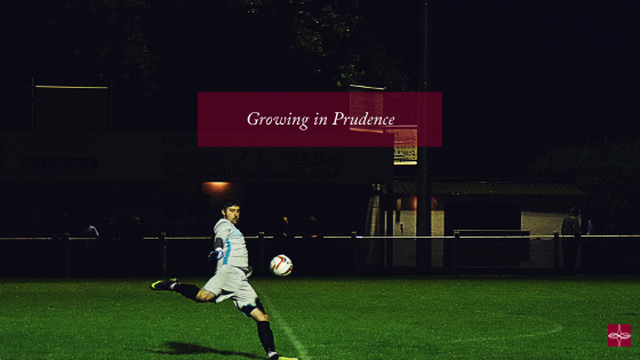
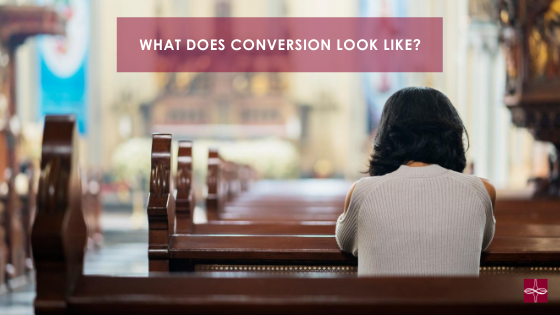

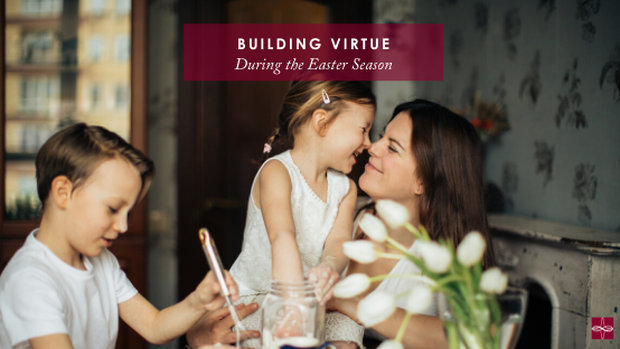

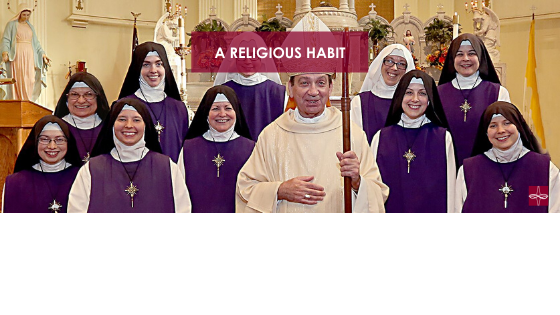

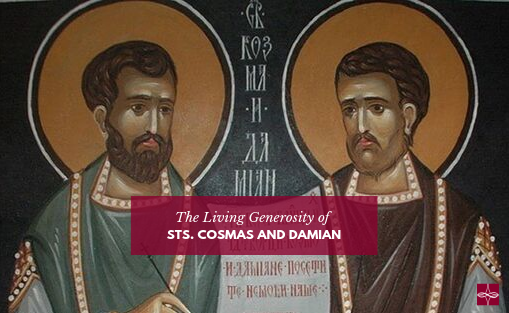

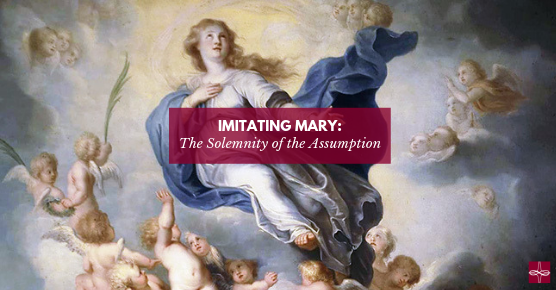



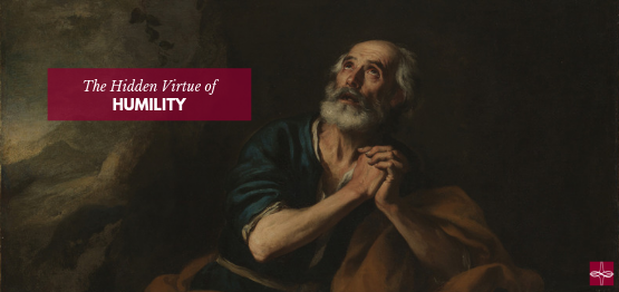



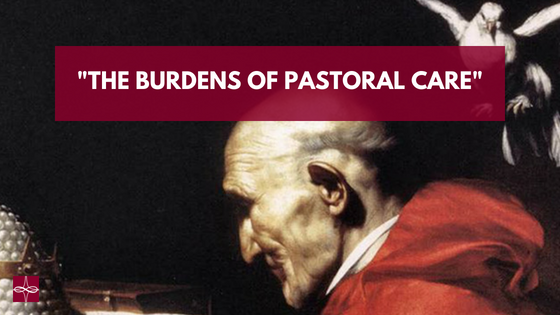

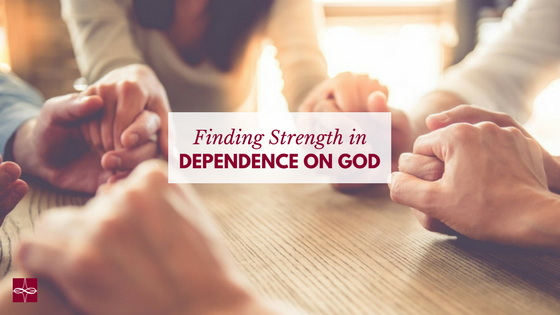

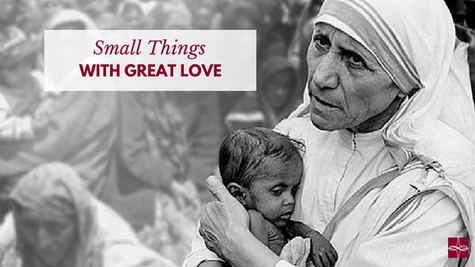


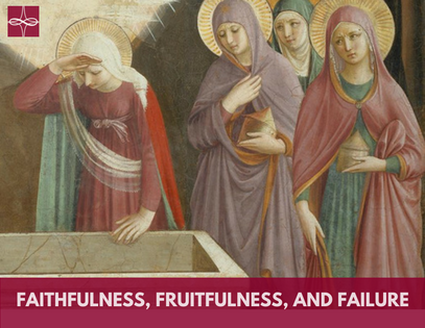

 RSS Feed
RSS Feed